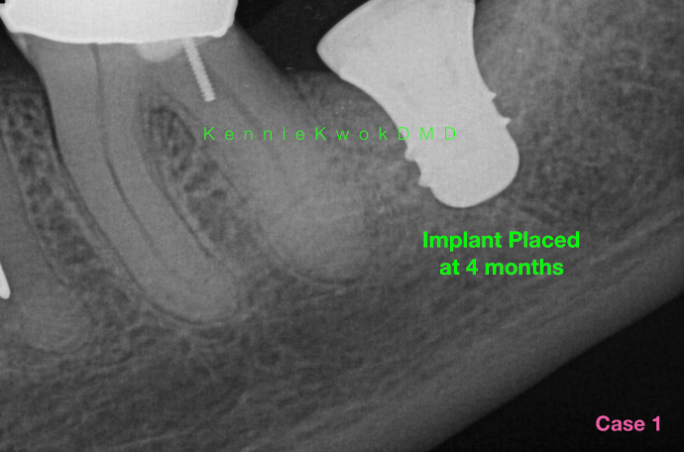When Is It Too Late To Get Dental Implants?
 When Is It Too Late To Get Dental Implants
When Is It Too Late To Get Dental Implants Have you ever wondered if it's too late to get dental implants? If you've been dealing with dental issues for a while, it's easy to feel overwhelmed. But before you give up hope, know that you may still be able to get dental implants even if you have been dealing with dental problems for a long time. Here’s what you need to know about getting dental implants at any age.
Is There an Age Limit for Dental Implants?
Generally, there is no age limit for dental implants. It's never too late to restore your missing teeth with implants. However, your age can be a factor in the success of your implants. Age is an important part of the implant success equation because it affects the strength of the jawbone where the implant is placed. If the bone is too soft, the implant or the crown may not stay in place.
In addition, the young teeth of a child are not suitable for implants. You must have a certain level of maturity and bone development to qualify for dental implants. The minimum age for implants is approximately 16-18 years of age for the upper teeth, and 13-15 for the lower teeth, as the growth of the lower jaw bone may be affected by implanted teeth.
Medical Evaluation
Many factors can influence the success of your dental implants. Your overall health will be taken into consideration as well as your age, bone health, and amount of bone deterioration. If you have pre-existing medical conditions, such as diabetes and other conditions that affect your immune system, your dentist may require a medical evaluation before proceeding with the implants.
Your dentist may also take X-rays or recommend a CT scan to take an in-depth look at the integrity of your jawbone. Once your dentist has a clear understanding of your oral health, they can determine how implants will affect your overall well-being. They will also go over a plan for how the implants will be placed and the recovery period.
Treatment Options
If you have lost a significant amount of bone in your jaw due to your age, your dentist may recommend other treatment options before implanting the tooth. Your jawbone may need to be strengthened or enhanced with additional treatments. The most common type of augmentation is a bone graft, in which a small amount of bone is taken from another part of the body or an animal source and placed in the gap. This bone graft will fill in the missing bone and give it the strength needed to hold the implant in place.
Another option is a sinus lift, which uses extra bone material to fill in the gap between your lower jaw and the lower part of your sinus cavity. This procedure adds more support to the jawbone and increases the chances of a successful implant.
Your dentist may also recommend other treatments such as external distraction osteogenesis. In this procedure, implants are inserted into the jaw and gradually expanded over the course of weeks. This allows the new bone to form around it as it is pulled apart.
Advantages of Implants for Older Patients
Despite the fears that come with age, there are several advantages when it comes to getting dental implants. One of the main advantages is that once the implants are placed, they are permanent. You don’t have to worry about them coming loose or shifting out of place. Dental implants also look and feel like natural teeth, so you don’t have to worry about how they look or feel.
Another advantage of dental implants is that they don’t require any alteration to existing teeth. Instead of grinding down healthy teeth to place a bridge or partial, you can get a permanent dental implant. This makes them a favored choice for older patients who want to preserve their natural teeth for as long as possible.
Understand Your Limitations
Although dental implants are an excellent option for people of all ages, it’s important to understand that there are risks and limitations. For instance, if you have pre-existing medical conditions like chronic illnesses or autoimmune diseases, getting dental implants can be risky. Additionally, smokers may need to quit smoking for at least two weeks before and after the implant is placed.
It’s important to do your research and consult with your dentist thoroughly to determine if dental implants are the right choice for you. Although implants can often be successful even at the age of 80, your dentist can help you understand your individual limitations.
Find the Right Professional
When it comes to getting dental implants, it’s important to find a qualified professional who has experience with the procedure. Look for a dentist or a periodontist who is a board-certified implantologist and is familiar with the latest technologies and techniques. Your implant expert should also understand your individual needs and be able to adapt the treatment plan to ensure the best results.
Conclusion
In conclusion, age shouldn't be a barrier to getting dental implants. With the right treatment plan and an experienced dentist, you can enjoy the benefits of dental implants regardless of your age. Talk to your dentist to find out if dental implants are the right choice for you.
Post a Comment for "When Is It Too Late To Get Dental Implants?"